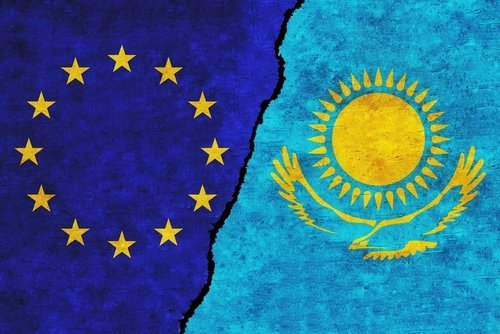Belgium (Brussels Morning Newspaper), Kazakhstan has attracted foreign investors since its independence, particularly in the mineral, petroleum, and natural gas sectors.
An integrated set of economic strategies, spearheaded by President Kassym-Jomart Tokayev, has led to a recent increase in foreign direct investment (FDI) into the country over the last 18 months.
With the help of foreign investments in a diverse range of sectors, the president seeks to further propel Kazakhstan’s upward economic trajectory.
This path is guided by a combination of his economic reform agenda, general initiatives for sectoral diversification, and his own personal international engagements at the highest level.
Three elements underpin Kazakhstan’s economic ambitions for the future:
As the first pillar at the core of Kazakhstan’s FDI strategy lies the comprehensive blueprint for economic reforms that the president unveiled in his recent state-of-the-nation address. Central to this ambition are aspirations for industrialization, diversification, and a transition towards a greener economy.
Taken together, these policies represent a set of meticulously crafted plans that lay a strong foundation for sustainable foreign investments.
The nation’s goals are ambitious yet grounded. Prime Minister Alikhan Smailov has articulated the target of attracting US$25 billion in FDI during the current year. This figure signifies a remarkable increase from the preceding year.
As a short-term goal, it dovetails with the president’s vision of channeling at least US$150 billion of new foreign investment over the next seven years. This blend of immediate actions and longer-term strategies looks set to nurture a conducive environment for foreign investments.
The second pillar of Kazakhstan’s blueprint for increased FDI comprises sectoral investments and sectoral diversification. By the beginning of this year, the total FDI stock in the mineral, petroleum, and natural gas sectors since independence had reached a remarkable US$169.2 billion.
However, over-reliance on natural resources as a target for investment produces a vulnerability to global commodity-price fluctuations. A deliberate move towards sectoral diversification is underway, with the aim to unchain the national economy from its long-standing dependence on these traditional industries.
The government’s commitment to diversifying the investment portfolio across varied sectors is clear from its active engagement with foreign investors through formal channels such as the President’s Foreign Investors’ Council.
On the international front, which constitutes the third pillar of President Tokayev’s integrated economic strategy, are his and his government’s frequent meetings with business representatives from around the world to forge robust commercial partnerships. Tokayev’s recent discussions with business leaders from China and Qatar, for example, have explored avenues for mutual economic partnerships.
Kazakhstan’s economic strategy not only highlights the government’s alignment with international norms but also positions the country as an attractive alternative for business operations amid ongoing geopolitical tensions.
These reforms thereby pave the way for a more competitive and investor-friendly economic landscape. A representative target set by the President is to escalate Kazakhstan’s exports of information technology (IT) services to US$1 billion by 2026. This target, for a key sector in the necessary informational infrastructure to support the anticipated foreign investment, indicates the depth of vision needed to nurture a digital economy,
The country’s FDI strategy is also notable for its combination of economic diversification with environmental sustainability. An example of President Tokayev’s stated commitment to a sustainable approach to economic development is his emphasis on greener solutions during the thirty-third session of the Foreign Investors Council.
Taken together, the intricately engineered economic reforms, sectoral diversification, and international engagements under President Tokayev define a coherent and strategic approach towards attracting substantial FDI to Kazakhstan. By finely orchestrating these necessary elements, President Tokayev has essentially crafted a roadmap that aligns Kazakhstan’s economic ambitions with international investment dynamics.
Such a forward-looking geo-economic strategy increases Kazakhstan’s profile on the global investment map, catalyzing its progress towards achieving economic sustainability and growth in the long term. The combination of policy reforms and international cooperation should serve Kazakhstan well in navigating the turbulent and increasingly complex global investment landscape.




